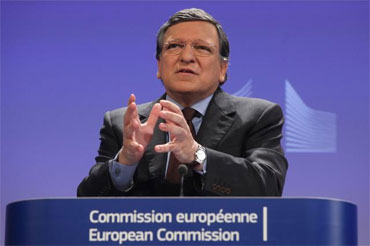The European Burma Network, a collective of advocacy and human rights groups, has released a joint statement urging the European Union to delay lifting remaining sanctions on Myanmar ahead of a review on April 22.

“We are concerned that the premature lifting of EU sanctions will undermine the reform process in Burma [Myanmar], and could even encourage further serious human rights abuses,” said the statement issued by Mark Farmaner, director of Burma Campaign UK, on March 26.
While the group is keen to recognize the reforms that have taken place in Myanmar since 2011, it highlights ongoing human rights abuses, continued ethnic conflicts, and the plight of the hundreds of political prisoners who remain detained, and sees the continued imposition of the remaining sanctions as an opportunity to encourage further positive change in the country.
“There is no doubt that there have been dramatic changes in Burma in the past two years, and that there is opportunity for further change which must be encouraged. However, we believe that European Union members have a tendency to highlight the positives while ignoring some important and harsh realities on the ground,” said the group's statement.
Their pleas are not singular: Jose Barroso, the European Commission President, has said that he is encouraged by Myanmar's reforms but that much more work is needed. This announcement came following a meeting with Myanmar President Thein Sein on March 5 in Brussels.
“Despite the impressive change that is underway, the reforms and the transition [to democracy] are not completed,” said Barroso in a statement following a meeting with the president.
Thein Sein had requested that the remaining EU sanctions be lifted during his European visit.
“What we lack is capital and modern technologies ... all these are because of the economic sanctions for the last 20 years,” he told journalists following talks with Austrian President Heinz Fischer.
Following the EU's initial relaxing of sanctions last April, the bloc stated that it “still expects the unconditional release of remaining political prisoners and the removal of all restrictions placed on those already released. It looks forward to the end of conflict and to substantially improved access for humanitarian assistance, in particular for those affected by conflict in Kachin State and along the Eastern border, as well as [addressing] the status and improving the welfare of the Rohingyas.”
The remaining sanctions in place include trade and investment in the sectors of logging, timber processing, and mining of precious metals and precious stones. There is also a list of sanctioned individuals who are seen to have impeded the country's democratic transition.


